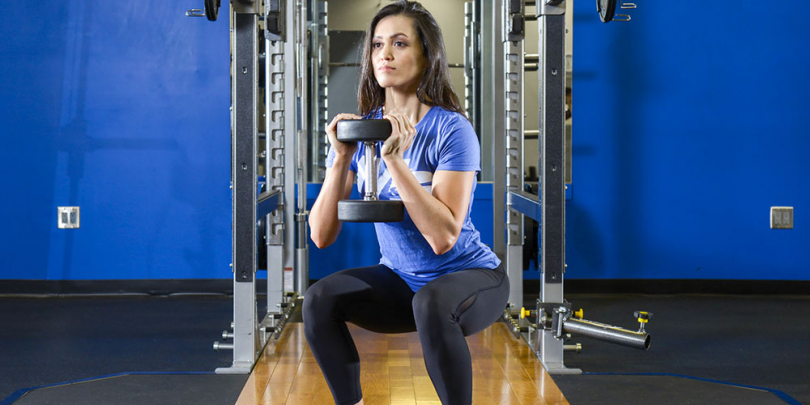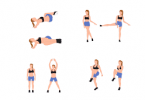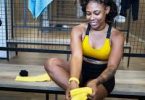Introduction: Embarking on a fitness journey as a beginner can be both exciting and daunting. The world of workouts and exercise regimens may seem overwhelming, but with a well-structured plan, you can ease into a healthier lifestyle seamlessly. This beginner’s workout guide will provide you with a step-by-step approach to kickstart your fitness journey.

Setting Realistic Goals: The first step in any fitness journey is setting realistic and achievable goals. Whether your aim is weight loss, muscle gain, or overall well-being, having clear objectives will keep you motivated. Start with small, attainable goals, such as walking 30 minutes a day or incorporating simple bodyweight exercises.
Choosing the Right Exercise Routine: Selecting the right exercise routine is crucial for beginners. Begin with a combination of cardiovascular exercises, strength training, and flexibility workouts. Cardiovascular exercises, such as brisk walking or cycling, enhance your heart health, while strength training builds muscle and boosts metabolism. Don’t forget to include stretching exercises to improve flexibility and prevent injuries.
Creating a Consistent Schedule: Consistency is key to any successful workout routine. Create a weekly schedule that includes dedicated time for exercise. Aim for at least 150 minutes of moderate-intensity exercise per week, spread across several days. Consistency will help your body adapt to the routine and make exercise a habit.
Proper Warm-up and Cool-down: Always start your workout with a proper warm-up to prepare your muscles and joints for activity. Dynamic stretches and light cardio are excellent warm-up choices. Similarly, conclude each session with a cool-down to help your heart rate gradually return to normal and reduce muscle soreness. Static stretches are ideal during the cool-down phase.
Gradual Progression: Avoid the temptation to push your body too hard initially. Gradual progression is key to preventing injuries and ensuring long-term success. Start with low-intensity workouts, gradually increasing the intensity and duration as your fitness improves. Listen to your body and make adjustments accordingly.
Incorporating Rest Days: Rest days are as crucial as workout days. Allow your body time to recover and repair by incorporating rest days into your routine. This prevents burnout and reduces the risk of overtraining. Use rest days for light activities like walking, yoga, or gentle stretching.
Staying Hydrated and Eating Well: Proper nutrition and hydration play a vital role in your fitness journey. Stay hydrated by drinking an adequate amount of water throughout the day. Focus on a balanced diet that includes a variety of nutrients, with an emphasis on lean proteins, whole grains, fruits, and vegetables. Consult a nutritionist if needed to tailor your diet to your fitness goals.
Tracking Progress: Keep track of your progress to stay motivated. Document your workouts, take measurements, and note any changes in energy levels or mood. Celebrate small victories, and don’t be discouraged by setbacks. Progress may be gradual, but consistency will yield results over time.
Conclusion: Embarking on a fitness journey as a beginner requires patience, dedication, and a well-structured plan. By setting realistic goals, choosing the right exercise routine, staying consistent, and prioritizing rest and nutrition, you’ll lay a solid foundation for a healthier and more active lifestyle. Remember, the key is to enjoy the process and make fitness a sustainable part of your daily routine.






